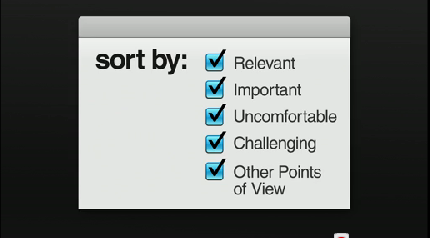In his recent TED Talk [March 2011 in Long Beach, CA], Eli Pariser calls on leaders of Facebook and Google to encode civic ethics into the algorithmic editors that serve up links to us based on our click history. (What’s an algorithmic editor, you ask? See Rand Fishkin’s smart comparison of algorithmic editors and pre-Internet tastemakers.)
What follows is a close paraphrase of Pariser’s conclusion. He begins by talking about human editorial gatekeepers of the twentieth century: “You couldn’t have a functioning democracy if you didn’t get a good flow of information. Journalistic ethics weren’t perfect, but it got us through the last century.
We need the new gatekeepers to encode that kind of [civic] responsibility into the code they’re writing. I know there are a lot of people [at this talk] from Google and Facebook: people who made the web what it is today. And I’m grateful to them. But we really need to make sure that these algorithms have encoded into them a sense of the public life, of civic responsibility. We need them to be transparent enough…so that we can decide what gets through [the algorithmic editors] and what doesn’t.
We need the Internet to introduce us to new ideas, people and perspectives. It’s not going to do that if it leaves us isolated in a Web of 1.”
For a comically chilling take on this subject, see “G-Male.”
Thanks to my students @zackstahl for surfacing the Pariser talk and @kksquared for Gmale YouTube.





